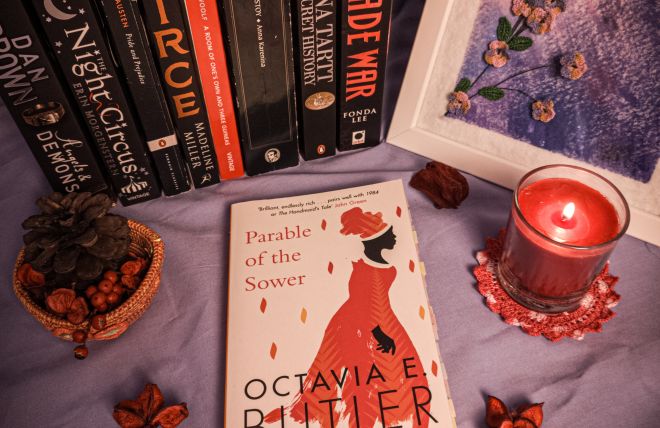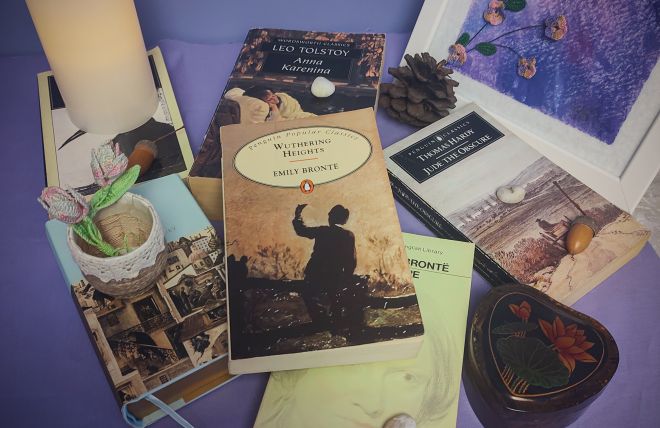Vicious is a brilliant fantasy novel that explores ambition, jealousy, revenge and the prevalent question of what makes a hero and what makes a villain.
In Vicious we follow the story of Victor Vale and Eli Cardale, two enigmatic college roommates who develop an obsessive interest in near-death experiences and discover the key to gaining extraordinary abilities. But as their ambition and hunger for experimentation rises, things swiftly move downhill, and events unfold where the two young men leave an inevitable mark on each other. A decade later, Eli’s past leads him on a mission to destroy every extraordinary person there exists, and Victor…
Victor is on a mission to destroy Eli.
I loved the way VE Schwab subverted the superhero/supervillain trope in this story, and the author also really accomplished to build up both characters’ ambivalent personalities and intricate backstories so that it leaves the reader guessing who is better and who is worse. Both protagonists have their fatal flaws, Eli has his self-righteousness and Victor his jealousy, and coupled with apathy, ambition and a hunger for power on both sides, these the two friends end up hurting each other beyond repair. Both protagonists are complex and have a complicated relationship with each other, one that turns from being friends to nemesis, and I was intrigued throughout the novel to find out who will win in the end.
A question of morality
What I really love about Vicious is that it plays with the readers' morality, it completely questions our judgement as we decide which character is the more likeable of the duo. By the end of the novel for me it was Victor. It’s very interesting that from the very beginning Victor and Eli stand apart from the crowd, they both have a darkness lurking inside them that they recognise within each other. In fact, in the very beginning, it's Victor that is built up as having the more terrible nature of the two. His ambition, jealously and lack of regard for those around him ends by hurting Eli. In a way VE Schwab shows how Eli tried to hide his nature behind a smile, but in the early chapters of the novel, this seems to be in favour. It makes him seem like he is trying to be better and repress his darker nature inside himself, while Victor is determined to carve out and bring to the surface the terrible in his friend.
“On the surface, Eli seemed perfectly normal, but now and then Victor would catch a crack, a sideways glance, a moment when his roommate's face and his words, his look and his meaning, would not line up. Those fleeting slices fascinated Victor. It was like watching two people, one hiding in the other's skin. And their skin was always too dry, on the verge of cracking and showing the colour of the thing beneath.”
However as the plot develops and Eli’s skin begins to crack, the readers begin to gain a new perspective, one where we see Eli’s God-complex and self-righteous hypocrisy reveal itself. Despite the hatred Eli feels for extraordinary beings, Eli sees his power of self-healing as something that distinguishes him from other EOs and thus makes himself believe that it's his mission from God to kill every other ExtraOrdinary out there. But when human lives get in his way, those in his eyes are just collateral damage. This is one of the differences between Victor and Eli that really differentiates how the readers view them. Victor acknowledges his nature:
“He wanted to care, he wanted to care so badly, but there was this gap between what he felt and what he wanted to feel, a space where something important had been carved out.”
Whereas, Eli deflects confronting with his darkness by making himself believe he is hero, a label which is difficult to maintain in the mind of the reader when you turn homicidal.
“What gives you the right to play judge and jury and executioner?”
Another aspect to that differentiates the two, is who they decide to surround themselves with. Mitch, Sydney and Dol are all endearing characters that care about each other and compliment Victor really well.
“Because you don't think I'm a bad person," he said. "And I don't want to prove you wrong.” (Victor to Sydney)
Meanwhile, the dynamic between Eli and Serena is extremely tense and their awful treatment of Sydney puts them further away from gaining the reader’s favour.
The humanity of being a superhuman
Another aspect I found extremely intriguing was how the author used the notion of extraordinary abilities caused by near-death experiences to question human existence. The gain of superpowers is driven entirely by human will - it’s that driving force inside us that's prepared to beat all odds for survival that sparks this transition. In addition, each individual’s personality and last thoughts in moment of death are also implicit in the superpower gained, which makes the whole process of becoming a superhuman very self-made. However, the fact that this process involves death poses a significant question: Is it that EOs are revived as humans with extraordinary abilities, or are they reborn as something else entirely, something utterly inhuman? Could it be that in death their souls are traded in exchange for those abilities, or is it just trauma that affects EOs their actions after they come back? This discussion is even harder when the characters driving this story are all heavily flawed and operate in a world devoid of innocence.
“ExtraOrdinaries were damaged, to say the least. But these words people threw around - humans, monsters, heroes, villains - to Victor it was all just a matter of semantics.”
“There are no good men in this game.”
“Someone could call themselves a hero and still walk around killing dozens. Someone else could be labelled a villain for trying to stop them. Plenty of humans were monstrous, and plenty of monsters knew how to play at being human.”
The problem with being an outsider
Another part of the problem is that an extraordinary individual is automatically an outcast. So few exist and each power is so unique, that it’s up to the individual person to control their power if they are not drowned by their fear or shame first. Eli sees EOs as something to be destroyed, Victor as a weapon to be used, either way this minority of people are often isolated and unable to fully understand themselves, and by the end of the novel are still largely not understood. It does make me wonder whether self-acceptance and finding a way of harnessing their power could make EOs less dangerous or if EOs will ultimately collapse under the strength of their power.
Vicious was a compelling read that intricately explored the unsteady balance between good and evil. The characters are complex, their dynamics well-built and their stories hooked me from the first page to the last, and I am really excited to see how the story will further unfold in Vengeful.


